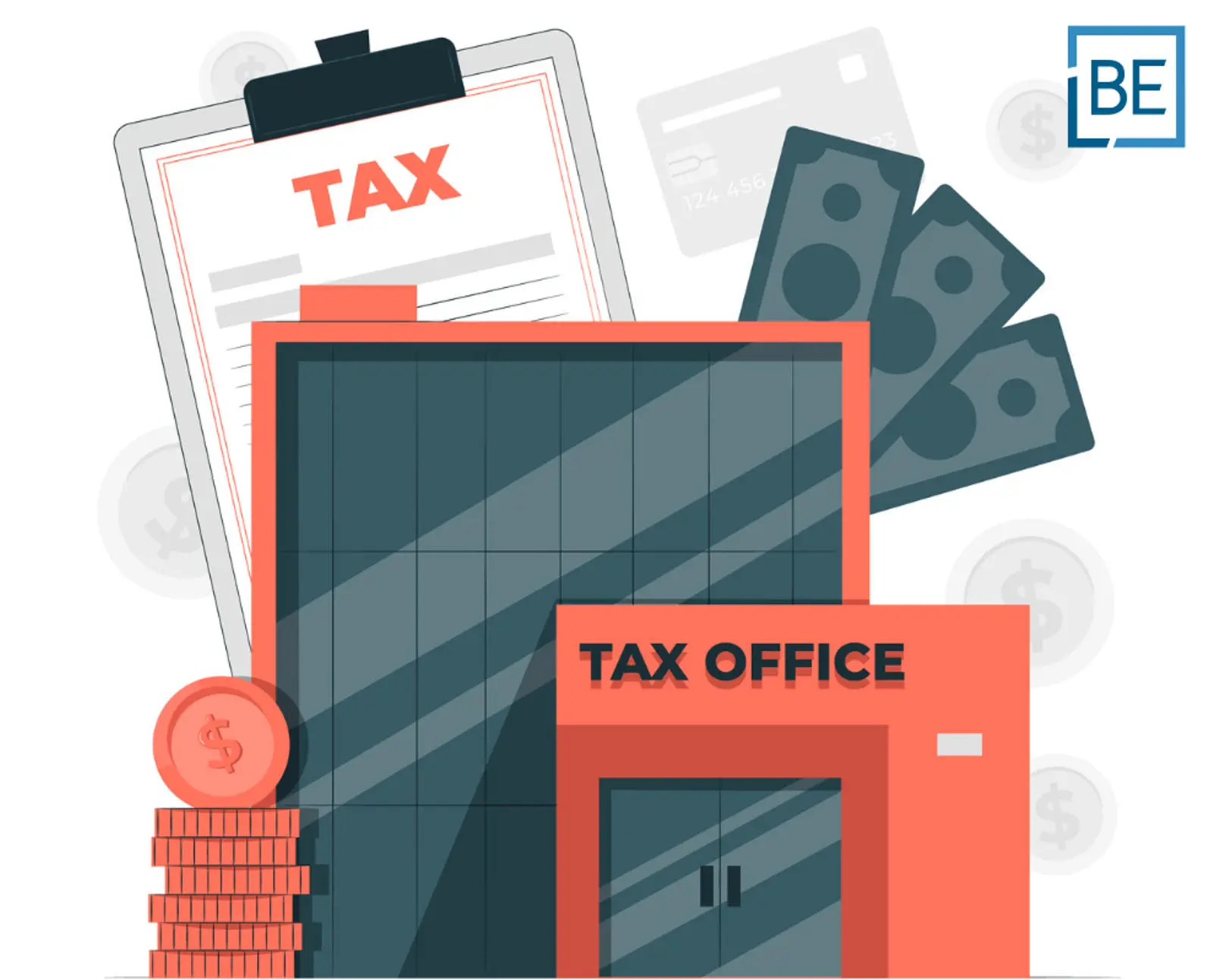Incorporation
New 15% Minimum Corporate Tax Introduced in Thailand
The Additional Tax Act B.E. 2567, which came into force on the 1st of January 2025 introduced a 15% minimum effective tax rate (ETR) for multinational enterprises (MNEs) with annual consolidated revenues exceeding 26,784,000,000.00 THB (€750 million). This aligns Thailand with the OECD’s Global Anti-Base Erosion (GloBE) Rules, aimed at reducing tax avoidance by larger companies.
In this blog post we will take a look at the key features of this new act and how it will affect businesses in Thailand.
Key points
- Thailand introduced a 15% minimum effective tax rate in January 2025 for multinational enterprises with annual revenues over 26.78 billion THB, aligning with OECD Rules.
- The Additional Tax Act includes three mechanisms: Domestic Minimum Top-Up Tax, Income Inclusion Rule, and Undertaxed Payments Rule to ensure compliance with the minimum tax rate.
- Companies have a 15-month transition period to comply with the new regulations, with non-compliance penalties up to 200% of tax shortfall.
- Companies receiving BOI tax incentives may still be subject to the 15% minimum tax rate, even if their BOI privileges would otherwise reduce their tax burden below this threshold.
- The Thai government plans to avoid potential negative impacts on foreign investment by offering support to companies that invest in R&D, environmental initiatives, or local staff training.
What is the New Additional Tax Act?
The Additional Tax Act was introduced as part of Thailand’s continuing commitment to the OECD framework. This new legislation helps ensure that large Multinational Enterprises (MNEs) contribute a fair share of taxes, regardless of where their profits are earned. The legislation also hopes to address serious concerns related to tax base erosion and profit shifting i.e actions that have allowed larger companies to take advantage of operating in jurisdictions with lower corporate tax rates.
The Thai government hopes that by introducing this legislation, local businesses will have a fairer and more level play field.
What is an Effective Tax Rate (ETR)?
The Effective Tax Rate (ETR) is the percentage of an individual’s or a company’s income that is paid in taxes, calculated as a proportion of their total income or profits. It provides a clearer picture of the actual tax burden. The ETR is easier to understand as the statutory tax rate, which is the rate of tax established by law, however it may not reflect the real taxes paid due to deductions, credits, and exemptions.
Formula:
ETR = Total Taxes Paid/Pre-Tax Earnings×100
Please see below for an example of how the ETR is calculated:
If a corporation earns $1,000,000 in pre-tax income and pays $150,000 in taxes:
ETR=150,000/1,000,000×100=15%
This means the company effectively paid 15% of its income in taxes, even if the statutory tax rate is higher.
What are the Key Features of the Additional Corporate Tax Act?
Introduction of a Minimum Effective Tax Rate
The act introduces a 15% minimum ETR for MNEs with global consolidated revenues exceeding 26,784,000,000.00 THB (€750 million). This ensures compliance with the OECD’s Pillar Two framework. The OECDs Pillar Two framework seeks to prevent tax rate arbitrage and profit shifting (i.e. taking advantage of reduced tax requirements of certain countries with lower rates of tax) by global corporations.
Mechanisms for Top-Up Tax Collection
The legislation incorporates three mechanisms to implement the top-up tax:
- Domestic Minimum Top-Up Tax (DMTT): Ensures that profits generated within Thailand meet the 15% minimum ETR.
- Income Inclusion Rule (IIR): Requires the parent entity of an MNE to account for taxes if subsidiaries fall below the threshold.
- Undertaxed Payments Rule (UTPR): Acts as a backstop, reallocating tax liabilities to other jurisdictions when the IIR does not apply.
Exemptions for BOI-Privileged Companies
Currently, Thailand’s standard corporate income tax rate is 20% for MNEs. However, the Thailand Board of Investment (BOI) offers various tax incentives, including corporate income tax exemptions for up to 13 years (depending on the activity) to promote investment.
With the introduction of the global minimum tax threshold within the Additional Tax Act, multinational companies benefiting from BOI tax exemptions may still be subject to the 15% minimum tax rate. Therefore if a multinational’s effective tax rate in Thailand falls below 15% due to BOI incentives, it may be required to pay additional taxes to meet the global minimum threshold.
Implementation Timeline
The act took effect on January 1, 2025, however there is a transition period of 15 months for companies to arrange everything to ensure compliance. Non-compliance may result in surcharges and penalties of up to 200% of the tax shortfall.
What Does This New Corporate Tax Mean for Businesses in Thailand?
Multinational businesses whose revenue exceeds 26,784,000,000.00 THB (€750 million) will now be subject to global minimum corporate tax (15% under the OECD framework). This means that if an MNE’s effective tax rate (ETR) falls below 15%, they will need to pay additional taxes to meet the global minimum.
While this may seem to have a negative effect on Thailand’s attractiveness as an option for Foreign investment, the Thai government has suggested plans to support companies that relocate research and development to Thailand, use environmentally friendly operations, or provide skills training to local staff. While no firm details have been announced as to how this support will look, it is expected to take the form of tax incentives. Please make sure to follow us for more information when it becomes available.
How can Belaws help?
For more information about corporate tax in Thailand, why not talk to one of our experts now?
Please note that this article is for information purposes only and does not constitute legal advice.
Our consultations last for a period of up to 1 hour and are conducted by expert Lawyers who are fluent in English, French and Thai.
Consultations can be hosted via WhatsApp or Video Conferencing software for your convenience. A consultation with one of our legal experts is undoubtedly the best way to get all the information you need and answer any questions you may have about your new business or project.
USD 150
Up to 1 hour
Online payment (Paypal or Credit card)
Legal consultation can be conducted in English, French or Thai
Legal consultations are handled by experienced lawyers from the relevant fields of practice
Frequently asked questions
What is Thailand’s new corporate tax regulation about?
Starting January 2025, Thailand introduced a 15% minimum effective corporate tax rate for multinational enterprises (MNEs) with annual revenues exceeding 26.78 billion THB. This aligns with the OECD’s Pillar Two framework to ensure fair taxation and reduce profit shifting to low-tax jurisdictions.
What is the purpose of the Additional Tax Act?
The Additional Tax Act ensures that large multinational companies contribute a minimum corporate tax, preventing them from taking advantage of lower-tax countries. It aims to create a fairer environment for local businesses while adhering to global tax standards.
What mechanisms enforce the new Thai corporate tax rules?
The Additional Tax Act includes three key mechanisms:
- Domestic Minimum Top-Up Tax (DMTT): Ensures companies pay at least a 15% tax rate on Thailand-based profits.
- Income Inclusion Rule (IIR): Requires parent companies to pay top-up taxes if subsidiaries pay less than the minimum.
- Undertaxed Payments Rule (UTPR): Allocates tax liabilities across different jurisdictions if needed.
How does the new corporate tax rate affect BOI incentives?
Even companies enjoying Board of Investment (BOI) tax exemptions may still be subject to the 15% minimum corporate tax. If their effective tax rate falls below 15% due to BOI incentives, they must pay additional taxes to meet the threshold.
What is an Effective Tax Rate (ETR)?
The Effective Tax Rate (ETR) is the actual percentage of income paid as taxes. It’s calculated by dividing total taxes paid by pre-tax earnings and multiplying by 100. This rate reflects a company’s real tax burden, not just the official corporate tax rate.
When must companies comply, and what happens if they don’t?
Companies have a 15-month transition period to ensure compliance. Non-compliance may result in significant penalties, up to 200% of the tax shortfall.
Will this corporate tax change affect foreign investment in Thailand?
While the new rules might raise concerns, Thailand plans to introduce supportive measures like incentives for R&D investment, environmental initiatives, and workforce development to maintain its attractiveness to foreign investors.
Related articles
Subscribe today
Subscribe today
To our newsletter for all the latest legal news
in South East Asia, Belaws updates and
special promotions on our services.
To our newsletter today for all the latest legal news in South East Asia,
Belaws updates and special promotions on our services.







 thailand company registration
thailand company registration